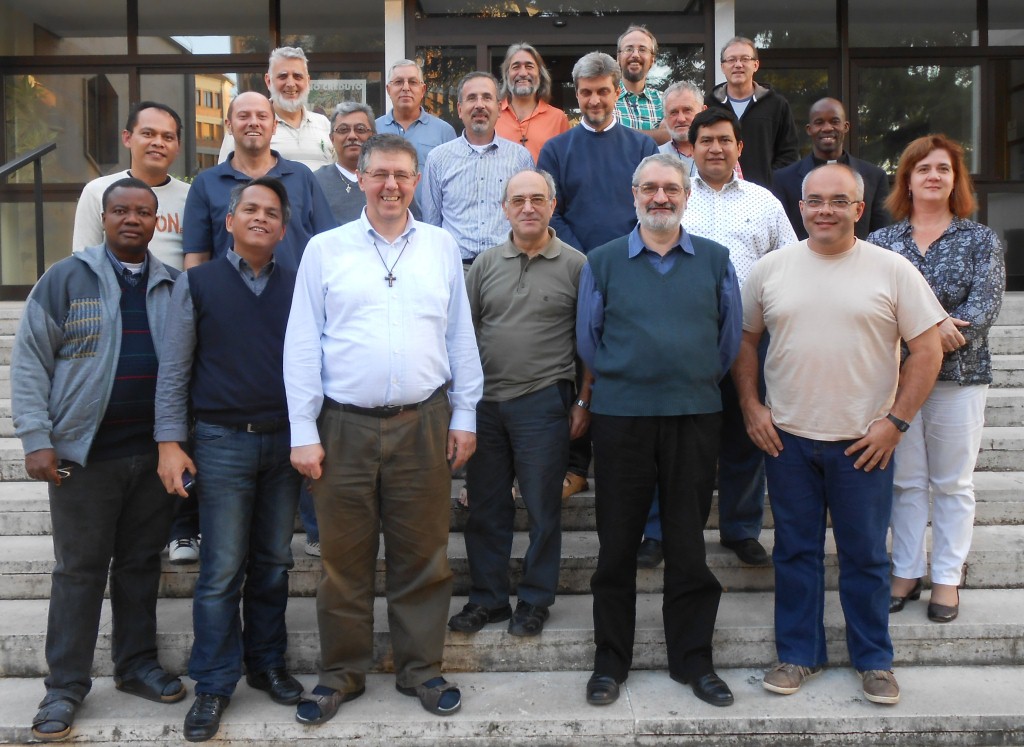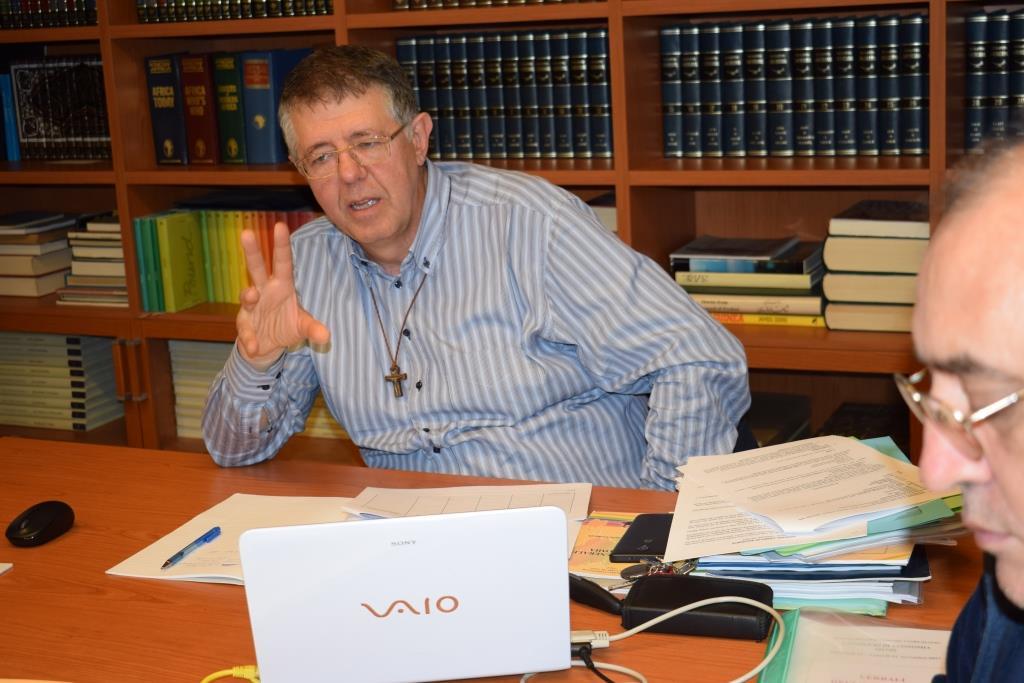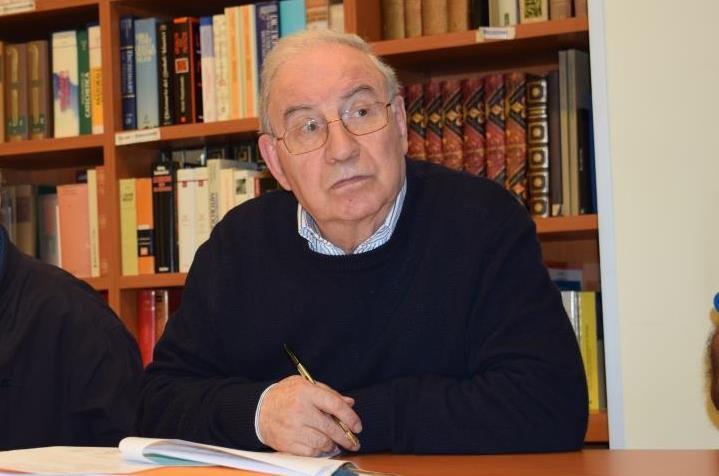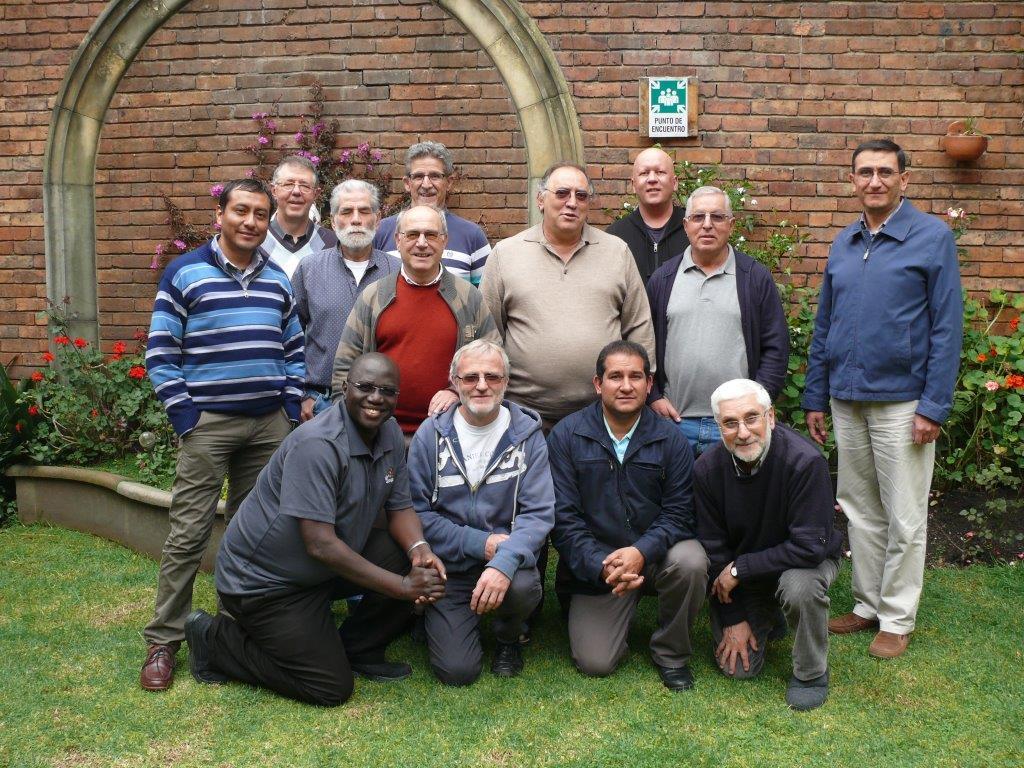Daniel Comboni
Comboni Missionaries
Institutional area
Other links
Newsletter
Rome, Tuesday, October 23 2012
On October 14-27 a course of formation for Comboni provincial treasurers and procurators is being held in Rome. Eighteen missionaries from various circumscriptions are taking part. Among them there are current provincial treasurers or others who will soon take the office and confreres who are in charge of important administrative responsibilities. “The course has as its objective to offer a synthetic vision of the various areas of work of the provincial treasurer, according to the practice of the Institute,” said the secretary general for the economy, Fr. Claudio Lurati.
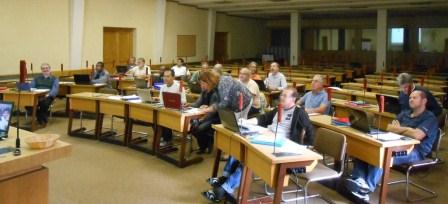
An entire day was given to the practice of an accounting program.
The topic of economy is central also in the religious and missionary life. This is confirmed by the words of the Chapter Acts 2009 of the Comboni Missionaries: “Finance is a dimension of everyday missionary life: a sign of the providence of God, a tool for growing in brotherhood and to bear witness to total dedication to mission. Whatever we own and the way in which we use it also reflect on what we proclaim” (CA ’09, 146).
Also the General Council, in presenting these CA states: “We have listened to and discussed the topic of “finance and mission” and it seems that a new sensitivity is pushing us to continue to seek for ways to live mission more as a project to be lived in communion, as a gift received together, and one that implies a more radical placing in common of all goods including those material and financial.”
In order to contribute to reach this style of life, the Comboni missionaries consider it important to prepare those missionaries who deal with the economy and with the administration of the Institute. In this sense the course of formation has as its objective ‘to offer a synthetic vision of the various areas of work of the provincial treasurer, according to the practice of the Institute, said Fr. Claudio Lurati, secretary general of the economy of the Comboni Missionaries.
In fact, the course is dealing with topics of Accounting and Finance, Civil and Canon Law, norms and practices of the Institute. In particular he dwelt on the Total Common Fund (TCF), how it functions and how to manage it through the new “Piano Contabile.” An entire day was given to the practice of an accounting program.
The formation of treasurers was declared a priority also at the last Chapter: “Every Circumscription – we read in the CA’09, 157.1 – should ensure that in every six-year period one or two confreres attend a formative course in administration and/or finance”.
On the TCF the last Chapter determined: “In the long term the TCF should be promoted in all Circumscriptions before the next Chapter – in 2015 – and this should be codified in the General Directory of Finance” (CA ’09, 150.1). Quanto alla sua implementazione (see CA ’09, 150.2), the 12th priority – Economy and Missio – states: “In the medium term all the Circumscriptions, over the next three years, should take the steps necessary to permit the adoption of the TCF: the presentation of the community budget, the distribution of the superavit, accountability to the finance secretariat of the Circumscription, the approval of community projects, etc. The Intercapitular of 2012 should evaluate the progress made and promote the adoption of the TCF in all Circumscriptions in the subsequent three years.”
Referring to the TCF Fr. Serafim Xavier da Costa Dias, provincial treasurer of Mozambique, believes that it is “a new and more evangelical way of being missionaries. The TCF is an instrument that helps in the planning of apostolic activities and human promotion. It is also a help in the planning of common life and in the cooperation with the local Church. In a few words, I think that the TCF requires the participation and the communitarian involvement of the confreres in the realization of God’s project entrusted to the Church, following the example of St. Daniel Comboni.”
In turn, Fr. Giorgio Aldegheri, treasurer of CAR, declared that he ‘was always available” and that he feels at ease with the TCF. “I acknowledge – he said – that what is needed is full compliance with the ‘evangelical counsels’, a free heart and mutual trust. The correct use of goods, and not only money, favors the acceptance of all of the TCF, allows us to live with serenity our brotherhood and favors a missionary service that is valid and that will last in time. An economy of communion requires a responsible poverty and true gratuity.”
Both statements are in tune with the thoughts of the members of the Chapter: “The principal dimensions that we wish to promote are: brotherly sharing through the TCF, a simple style of life and the responsible and transparent administration of resources in order to serve the mission and the poorest.” (CA ’09, 149).
The economic and financial crises at world level do not leave our missionaries indifferent. They are conscious of the situation of thousands of families that were used to live at a reasonable level, especially in Europe, and that now find themselves ever more impoverished. They are worried about the reality of the over 72 million people – according to the 2012 edition of the World Disaster Report, presented last week in Geneva – obliged by conflicts, natural disasters and political turmoil to forced migration. The yearly report of the international Federation of the Red Cross and the Red Crescent states that of these 72 million, 20 million are long term refugees. The missionaries are also pained by the 870 million people in the world who are hungry. This number was made public on October 16 by the Committee for world alimentary security of the FAO.
Faced with this picture, Fr. Paolo Latorre, a Comboni missionary from Kenya, states that “in fulfilling our service of treasurers and administrators for our communities and missions, it is important to learn how to manage the resources that Providence gives us in a vision of sharing and coresponsibility. This invitation may seem useless and taken for granted, but it is clear in my mind that the way of managing resourses by the businesses of this world influences us a lot and makes the logic of profit and of placing our security in economic resourses penetrate among us. We know Who gives us security, so that to manage economic resources must be an act of gratitude first and of respect of these resourses and of the One, and of those who give them to us. To have more economic resourses – he added – does not help us to be more missionaries; I believe instead that to have a greater awareness that around us there is a greater need of sharing and coresponsibility – those that come from the Cenacle of Apostles – will help us to be missionaries of God according to the charism of Comboni.”
According to Fr. Latorre the course is well organized and “is a good occasion to live communion and harmonize the service of the economy which is requested of us.” “Today more than ever – he concluded – we need competence and knowledge with regard to certain technical procedures of management.”
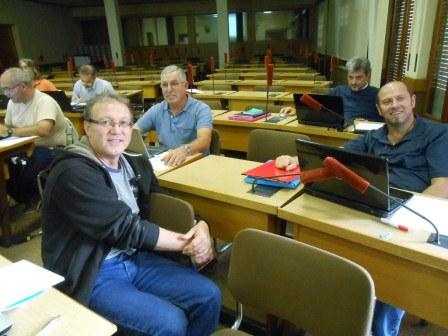
On the left: Fr. Battaglia Leonardo (Ecuador).
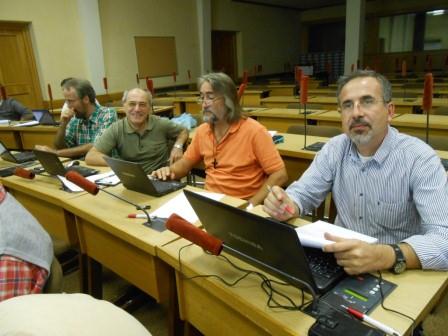
From right: Fr. Serafim Xavier (Moçambique), Fr. Avelino Maravilha (Chad),
Fr. Vitor Anciães (Brazil) and Fr. Ivardi Filippo (Chad).
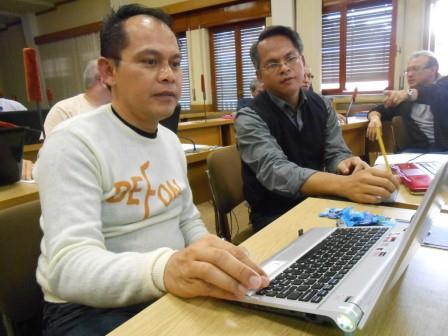
From left: Fr. Tabaranza Raul Baluma (Philippines),
and Fr. Apaap Bonifacio Jr. Autentico (Khartoum, in Sudan).

